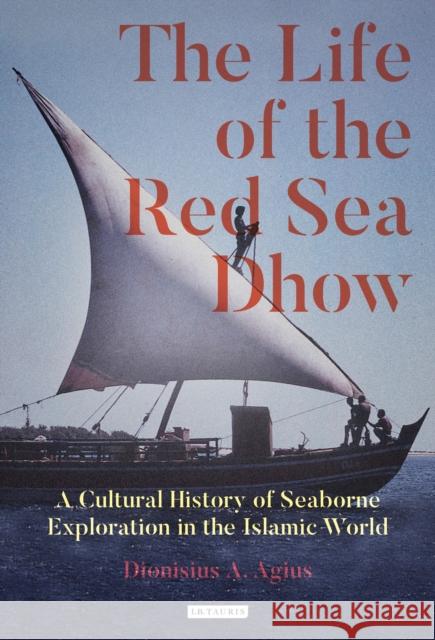The Life of the Red Sea Dhow: A Cultural History of Seaborne Exploration in the Islamic World » książka
The Life of the Red Sea Dhow: A Cultural History of Seaborne Exploration in the Islamic World
ISBN-13: 9781848858060 / Angielski / Twarda / 2019 / 384 str.
The Life of the Red Sea Dhow: A Cultural History of Seaborne Exploration in the Islamic World
ISBN-13: 9781848858060 / Angielski / Twarda / 2019 / 384 str.
(netto: 465,50 VAT: 5%)
Najniższa cena z 30 dni: 470,97
ok. 30 dni roboczych.
Darmowa dostawa!
For centuries the waters of the Red Sea have been amongst the most hazardous and feared in the world. Strong or erratic winds have taken lives and broken boats, smashed against rocks or hidden sandbars. Pirates too have menaced: some out for booty alone; others for slaves. Many seafarers have been terrified by the capricious genies of the ocean, and only by prayer and ritual might crew members hope to ward off any disaster or evil that might befall their ship.
Central to this archetypal and perilous maritime scene has been the dhow, the versatile sailing craft that survives to this day and that for many hundreds of years has linked the commercial and pilgrim centres of sea and desert. In his new book Dionisius A. Agius, one of the foremost scholars of Islamic material culture, offers a lucid and wide-ranging history of the iconic dhow from medieval to modern times. While the history of global and seafaring exploration is more popular than ever, seaborne discovery from Islamic lands remains an understudied subject. Whether discussing trade and salt routes; shoals and wind patterns; spice harvest seasons; litanies and votive offerings to the sea; or the deep and resonant connection between language, memory, and oral tradition, this is the first book to place the dhow in its full and remarkable cultural contexts.











